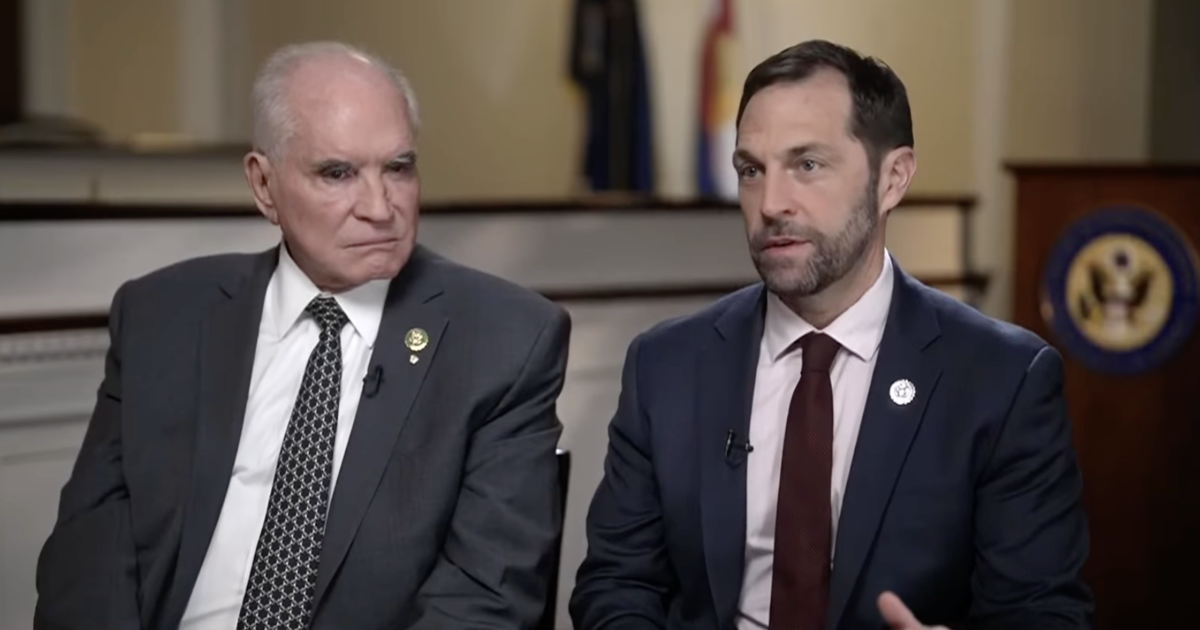Rep. Jason Crow of Colorado, the top Democrat on the bipartisan House task force investigating the assassination attempts against President-elect Donald Trump, has raised concerns about a “culture of silence” within the Secret Service. He believes that this culture prevents agents from speaking out when they witness wrongdoing or security lapses. Crow’s remarks came during an appearance on “Face the Nation with Margaret Brennan,” where he highlighted the need for transparency and accountability within the agency.
The House task force was established earlier this year to investigate security failures surrounding the July 13 assassination attempt in Butler, Pennsylvania, and the foiled attempt in West Palm Beach, Florida on September 15. Following the initial attack, the Secret Service faced intense scrutiny, leading to the resignation of its director. The recent hearings conducted by the task force aimed to shed light on the lapses in security protocols and procedures that allowed the attempts to occur.
Acting Director Ronald Rowe testified before the panel in its final hearing, acknowledging the agency’s failure to adequately secure the area in Butler and highlighting “critical gaps” in its operations. He admitted that the Secret Service did not meet the expectations of the American public, Congress, and their protectees. Rowe emphasized the agency’s commitment to reform and learning from past mistakes to enhance its protective measures.
Task force chairman Rep. Mike Kelly, a Pennsylvania Republican, echoed concerns about the lack of leadership within the Secret Service. He argued that the agency lost its identity and exclusivity when it was brought under the Department of Homeland Security. Kelly emphasized the need for strong leadership and a clear mission to prevent future security breaches.
During the hearings, Kelly criticized the Secret Service’s handling of the July 13 attack, citing failures at every step of the operation. He pointed out issues such as site selection, preparation, coordination, communication, and lack of professionalism among agents. Kelly emphasized the importance of effective communication and coordination in preventing security breaches and ensuring the safety of protected individuals.
Rep. Crow raised questions about the motivations of the assailants in Butler and West Palm Beach, urging the Justice Department and FBI to provide more information. He expressed frustration over the agencies’ reluctance to share details due to ongoing criminal investigations. Crow accused the agencies of stonewalling Congress and called for greater transparency in the investigation process.
Crow highlighted systemic issues within the Secret Service, noting a lack of changes in staffing and training protocols despite evolving security challenges. He emphasized the need for continuous skill development and training for agents to adapt to new threats and protectees’ changing security needs. Crow pointed out that the agency’s failure in Butler was a result of mission failure and inadequate preparation.
Kelly emphasized the task force’s efforts to restore trust and confidence in the Secret Service, which he described as being at its lowest ebb in history. He acknowledged the daunting task of protecting the President and other high-profile individuals, emphasizing the agency’s dedication to ensuring the safety and security of the American people. Kelly stressed the importance of maintaining public trust and confidence in the Secret Service through proactive measures and transparency.
In conclusion, the House task force’s investigation into the assassination attempts against President-elect Donald Trump has highlighted significant security lapses within the Secret Service. Members of the task force, including Rep. Jason Crow and Rep. Mike Kelly, have called for reforms, increased transparency, and improved leadership within the agency to prevent future security breaches. The hearings have underscored the critical need for effective communication, coordination, and training to enhance the Secret Service’s protective capabilities and ensure the safety of those under its protection.









